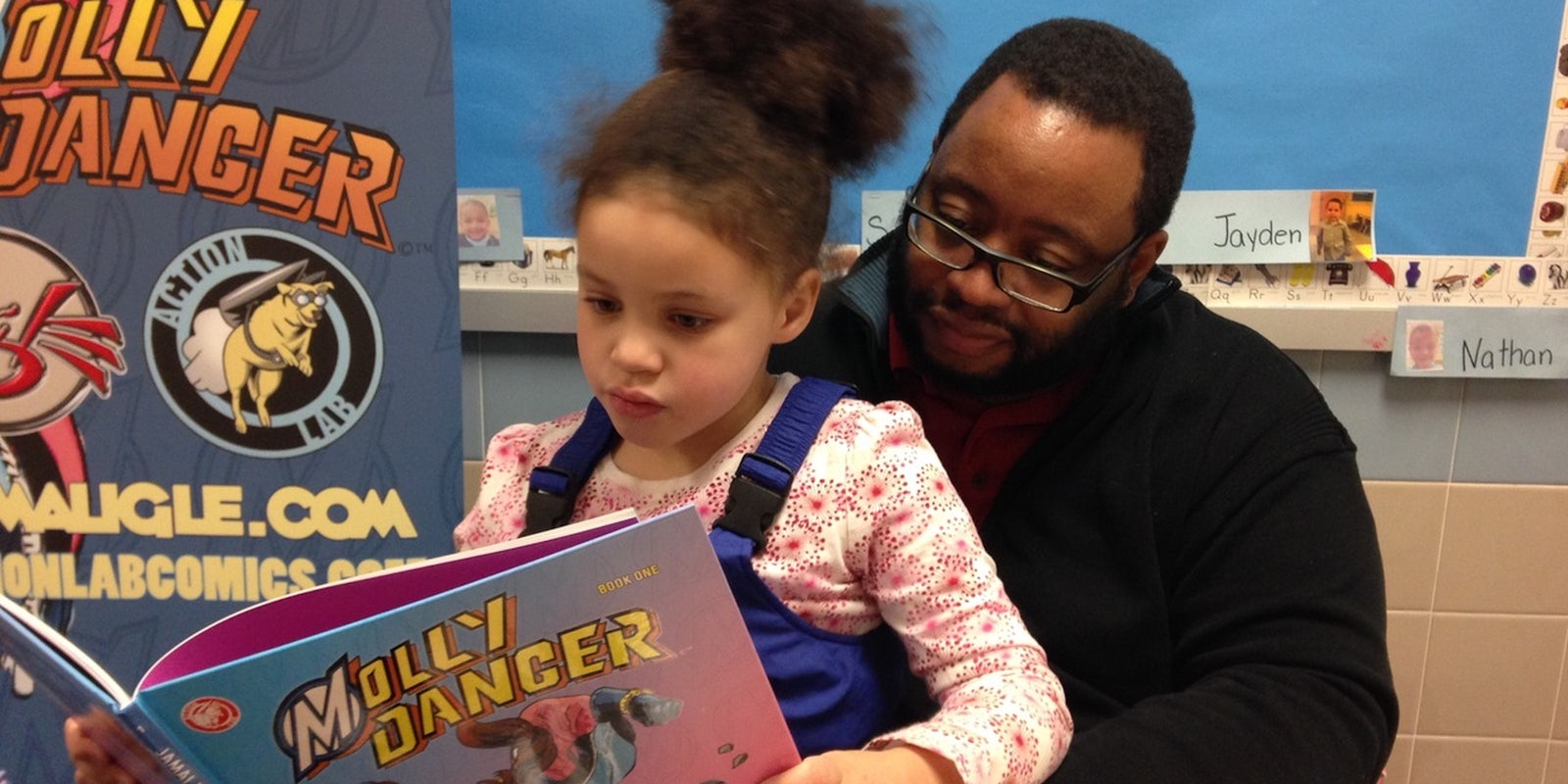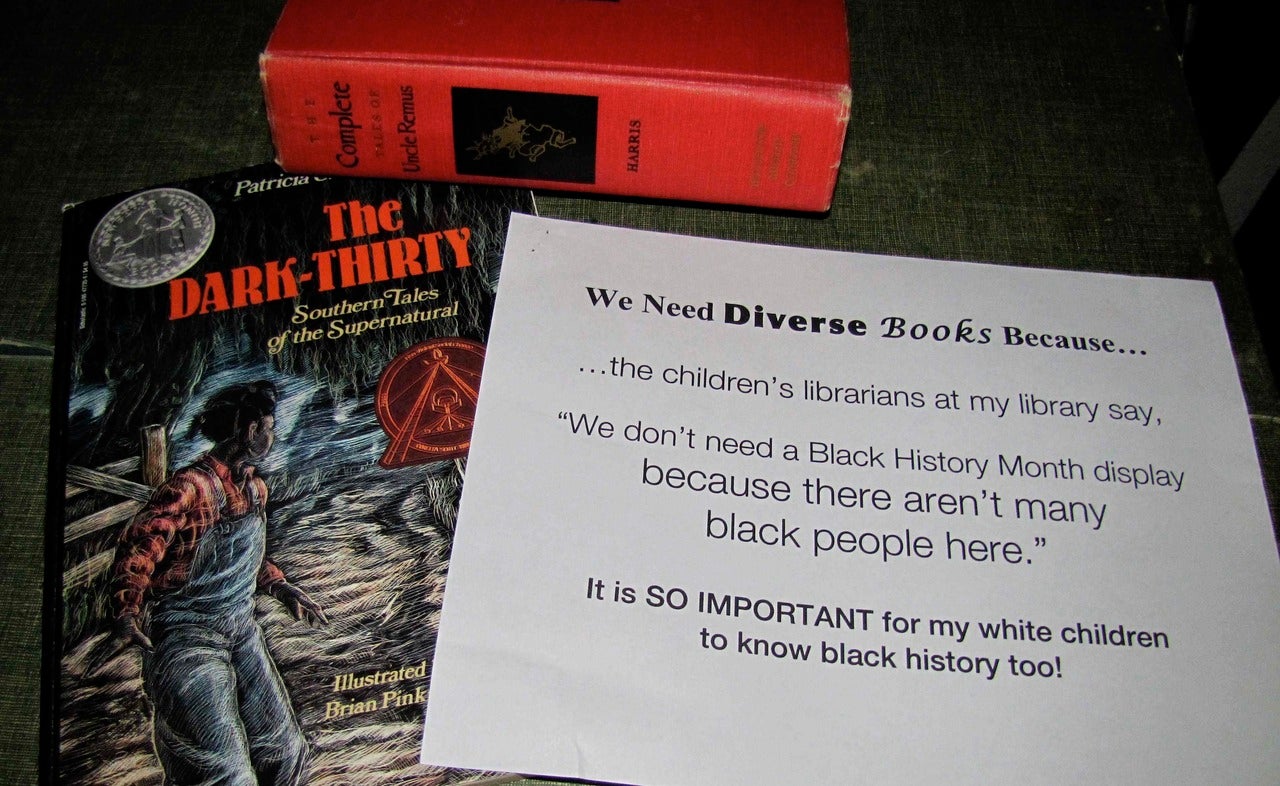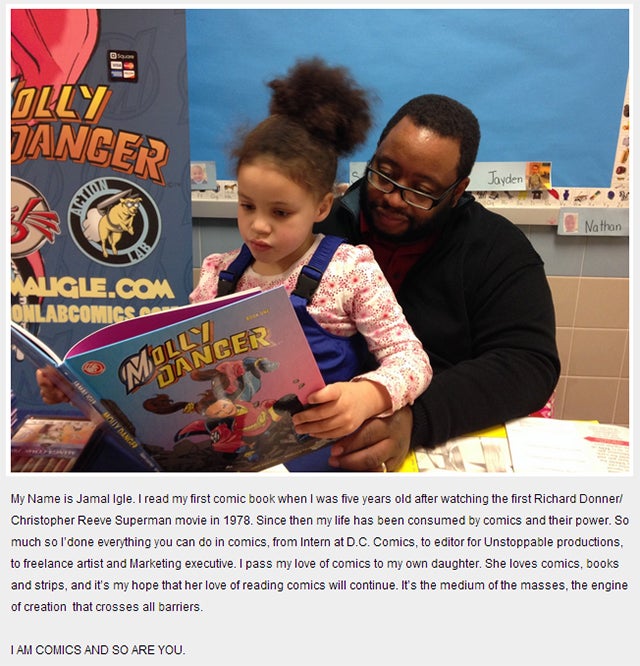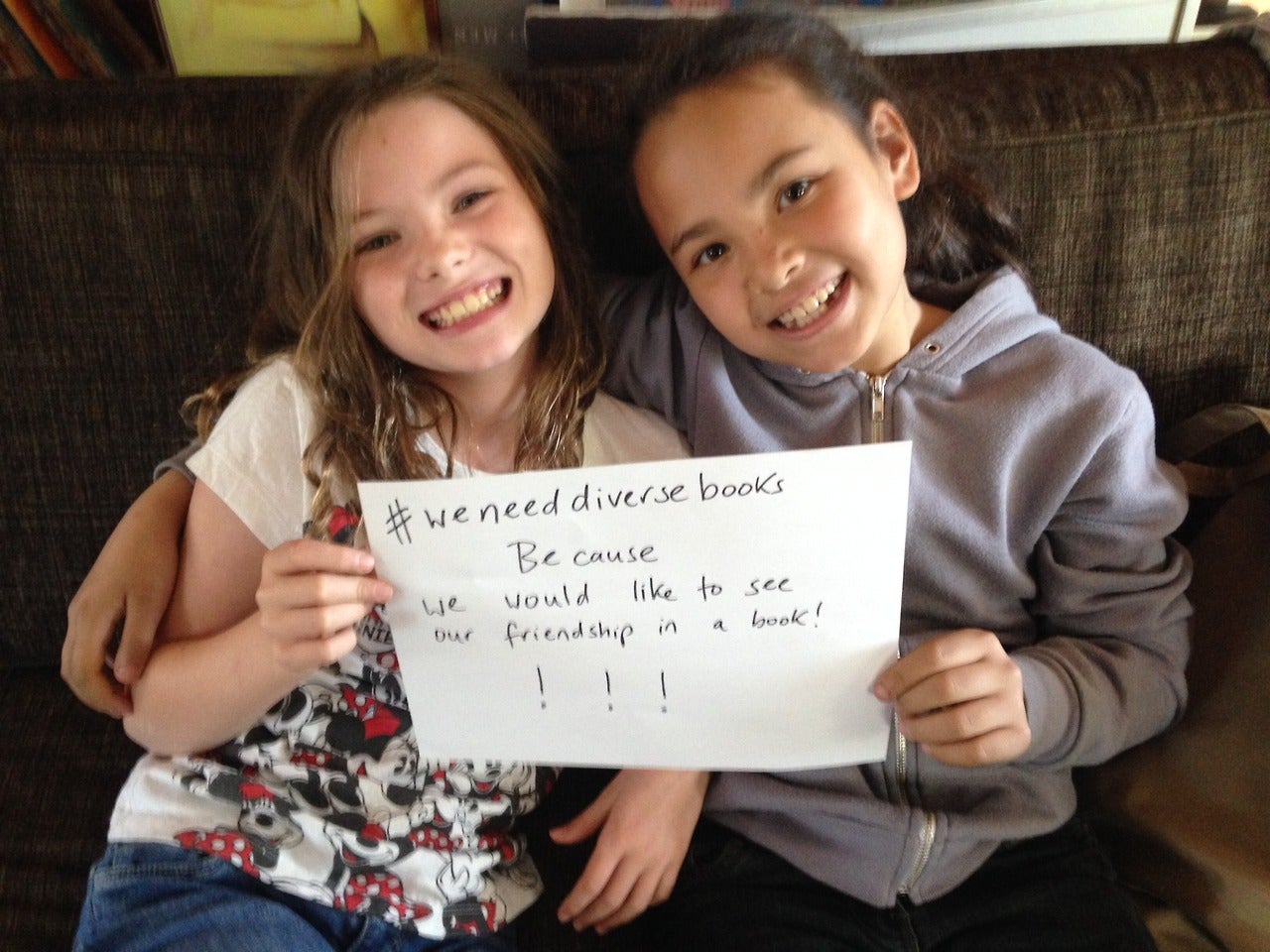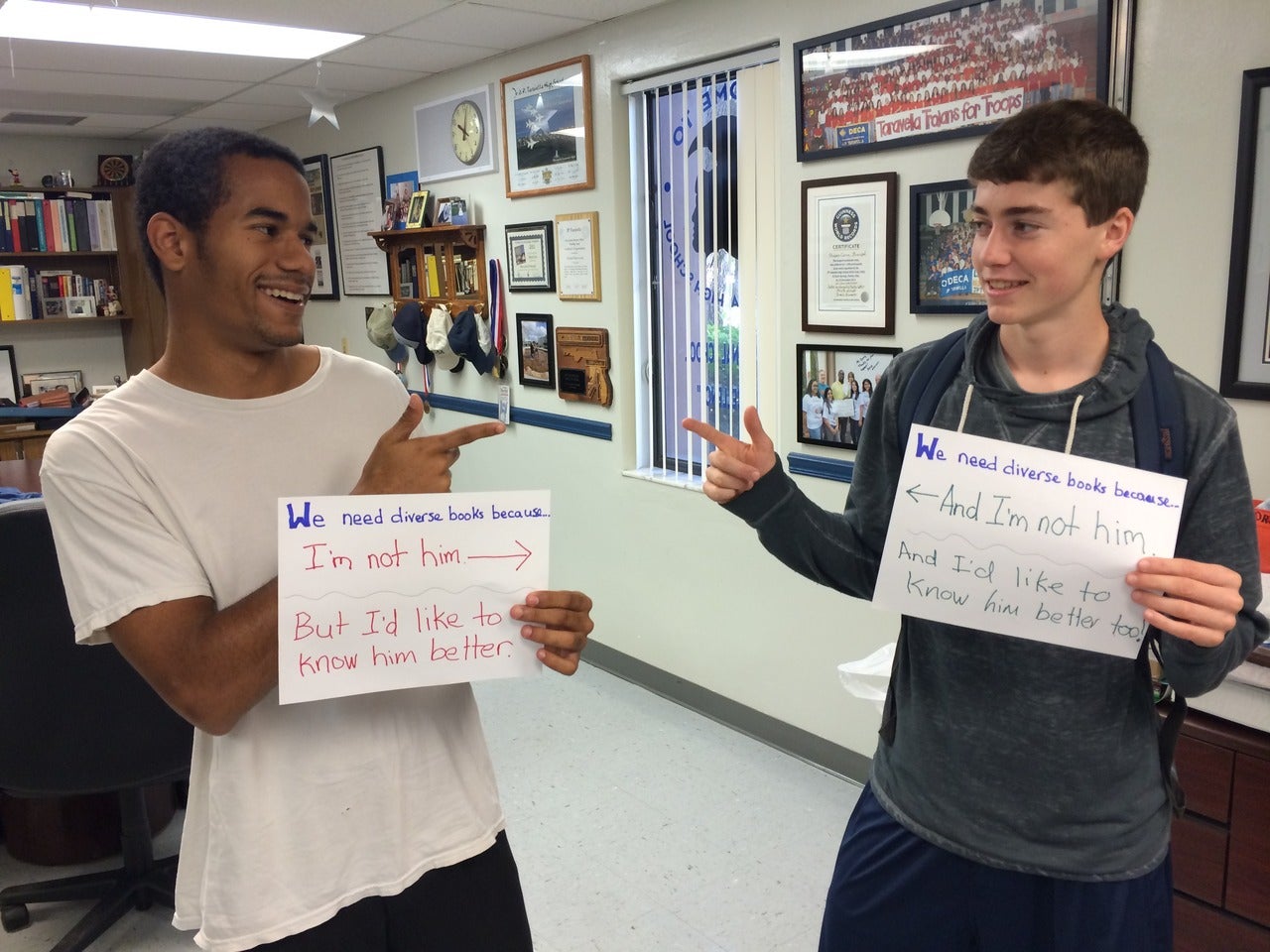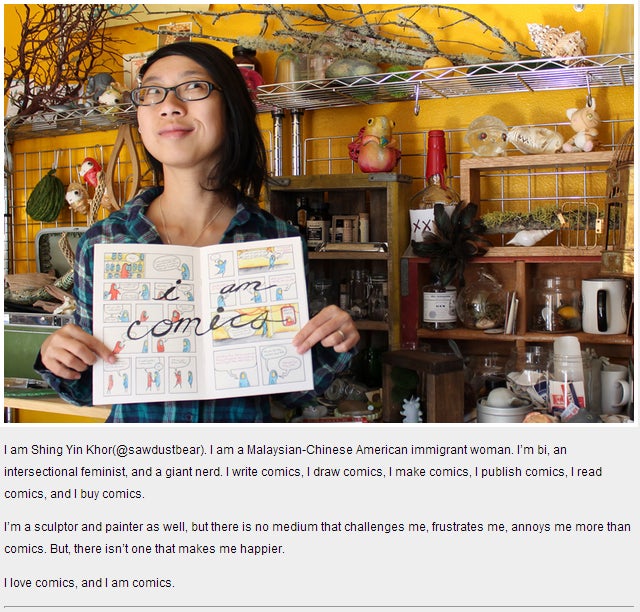Two different corners of geekdom are getting a major face lift this week, thanks to the members of fandom who are fed up with the ongoing sexism and lack of representation in their fandom communities.
Comics writer and editor Rachel Edidin began the Tumblr We Are Comics as a way of combating the ongoing marginalization of women, people of color, and other marginalized groups of geeks who often get erased, ignored, or even actively ostracized in comics culture. As the Tumblr states:
We are comics: creators, publishers, retailers, readers; professionals and fans. And we are a lot more diverse than you might think.
We Are Comics is a campaign to show—and celebrate—the faces of our community, our industry, and our culture; to promote the visibility of marginalized members of our population; and to stand in solidarity against harassment and abuse.
Though it’s not explicitly stated as a reason for the Tumblr’s timing, We Are Comics was made shortly after the harassment of comics writer Janelle Asselin. Asselin received rape threats and had her personal information revealed on the Internet after she criticized a sexist comic book cover.
Similarly, #WeNeedDiverseBooks, created by writer Ellen Oh, has gained traction on Twitter and Tumblr in response to controversy within the book blogosphere, after the publishing industry’s largest annual conference announced an all white-male Young Adult panel followed by an all-white guest list. Although it didn’t officially start until May 1, the hashtag spent the last few weeks of April gaining steam as angry book bloggers took to Twitter to voice their frustrations with what they saw as the industry’s complaisance towards vital issues of representation and equal treatment.
The idea of both social media projects is the same: members of the communities take pictures of themselves, putting a face to the vastly diverse community that exists for the fandoms that seemingly exclude everyone who isn’t a prized white male geek or reader. It’s a tactic that’s proven effective in similar campaigns in the past, like the Cosplay /= Consent campaign, which drastically simplified the debate over harassment of cosplayers at conventions.
Instead of paraphrasing the reasons that comics fans and readers are giving for their desire for more representation, we’ll let them speak for themselves:
Photo via weneeddiversebooks
Photo via wearecomics/Tumblr
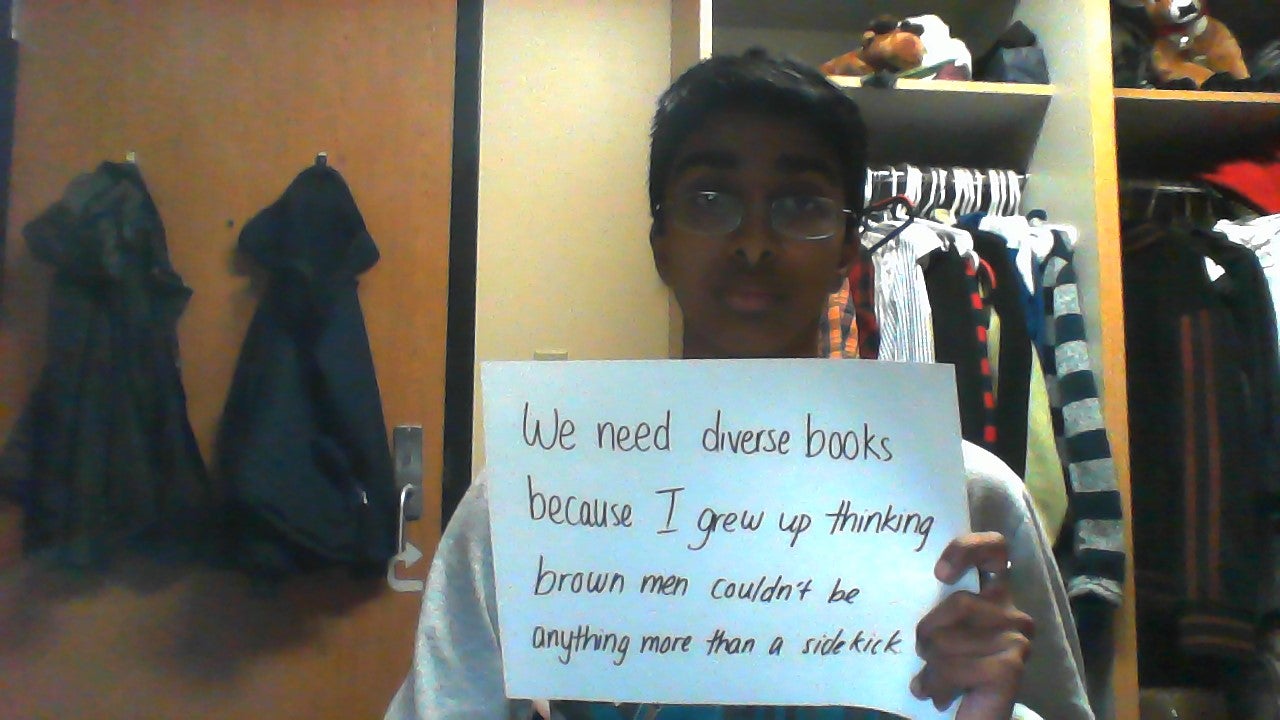
Photo via weneeddiversebooks
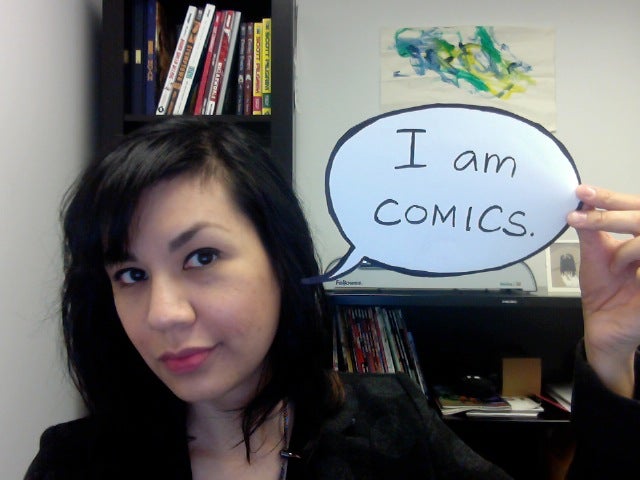
Photo via wearecomics
My name is Jennifer de Guzman, and I am comics.
In my thirteen years in the comic book industry, I have worked in production, editorial, marketing, and comics journalism. (For much of the time, all three at once!) I am the Director of Trade Book Sales at Image Comics.
I started reading comics in high school. Battle Angel Alita and Sandman were my first comics. When I saw that women worked as artists and editors on Sandman, I realized there was a place for me in the industry. I went to the San Diego Comic-Con (every year until last year since 1999!) and found Kabuki by David Mack and Channel Zero by Brian Wood. Comics like GloomCookie by Serena Valentino and I Feel Sick by Jhonen Vasquez followed soon after. I worked at the publisher of those two titles, SLG Publishing, for ten years, most of them as editor-in-chief. There, I worked with phenomenal creators who have gone on to be leading figures in bringing comics to wider readers, like Faith Erin Hicks and Gene Luen Yang.
I have also written comics short stories published in Image’s Put the Book Back on the Shelf and This Is a Souvenir and IDW’s Womanthology: Space. For several years I had a column at Publishers Weekly about comics and also have reviewed graphic novels for PW.
Despite this extensive experience, I still often feel like an imposter of sorts. As a very young woman, I was gawked at in comic book stores. Every time I’ve worked in a booth at a convention, someone has asked a question of a male volunteer standing next to me instead of me. I feel insecure offering my thoughts as expertise.
But I know I have to get over that. And here’s why: the industry needs to hear our voices. It needs to learn to listen to our voices. If I can change perceptions and encourage other women in comics by saying “I know what I’m doing and I know what I’m talking about,” I will do it. Because I am inspired by women who stand up for themselves every day.
So here goes:
I know what I’m doing.
I know what I’m talking about.
I am comics.
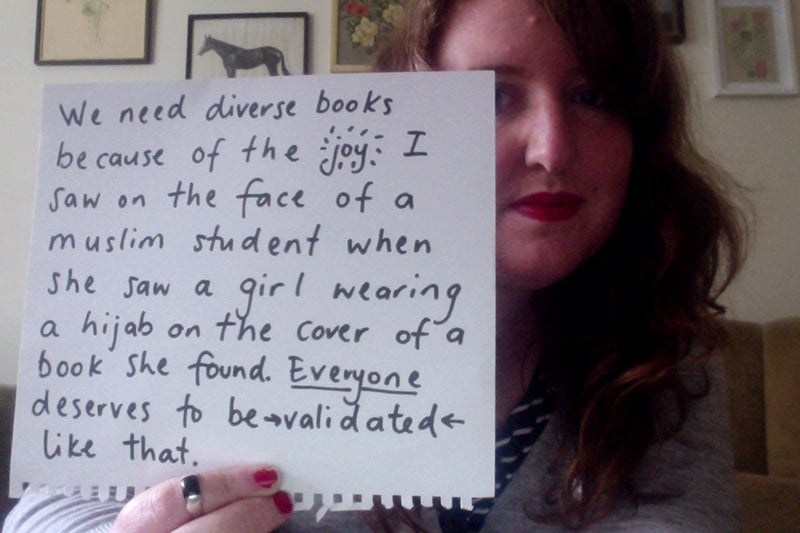
Photo via weneeddiversebooks
Photo via weneeddiversebooks
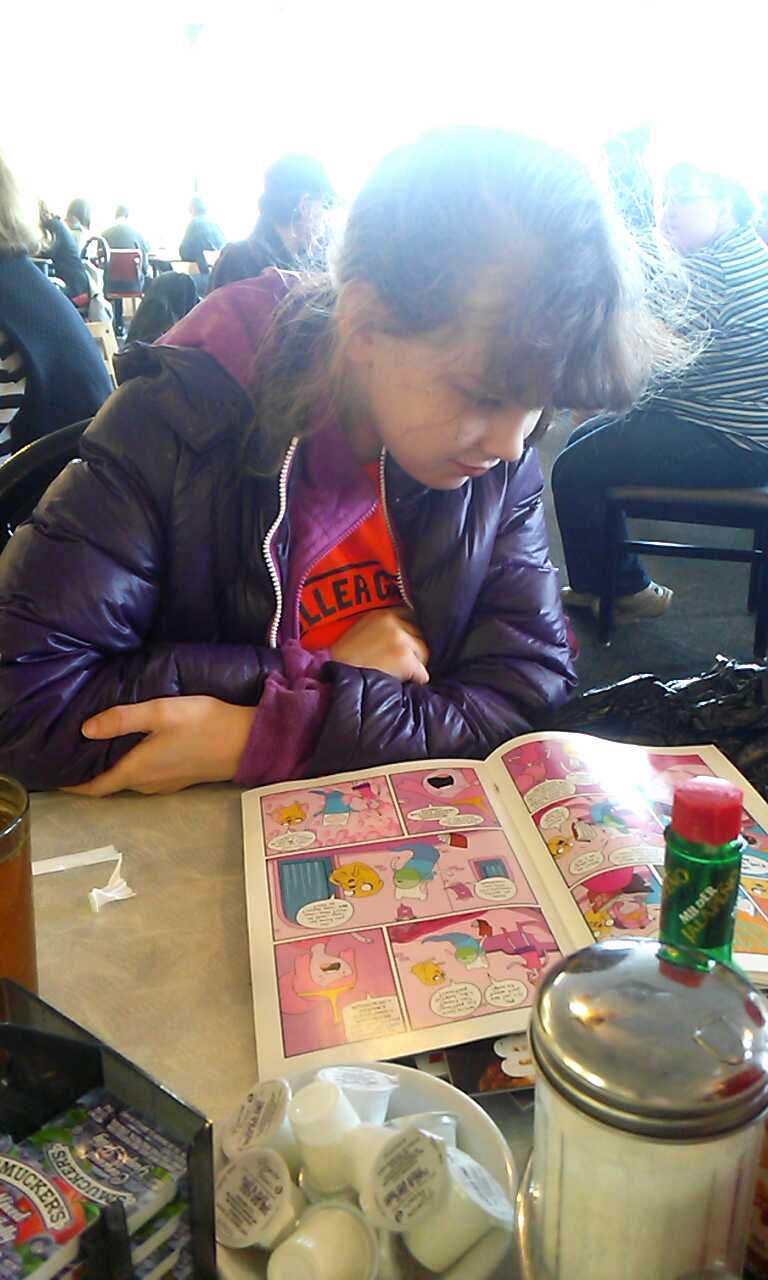
Photo via weneedcomics
She is comics. She is nine years old, and her best imaginable day included swimming, roller skating, and brunch after the comic store. She has 5 or so titles on her pull list, and opinions on all of them. She’ll read some of her parents’ titles sometimes.
Her favorite, most beat-to-death books are Dragonbreath, Liberty Meadows, and Calvin and Hobbes.
She was disappointed to learn that while sometimes we can read books in the bath, we can never read comics in the shower.
She is comics. She is nine.
Photo via weneeddiversebooks
Photo via wearecomics
Since the campaigns began, both have been flooded with submissions. You can follow #WeNeedDiverseBooks on Twitter and Tumblr, and follow We Are Comics on Tumblr.
Photo via wearecomics/Tumblr

